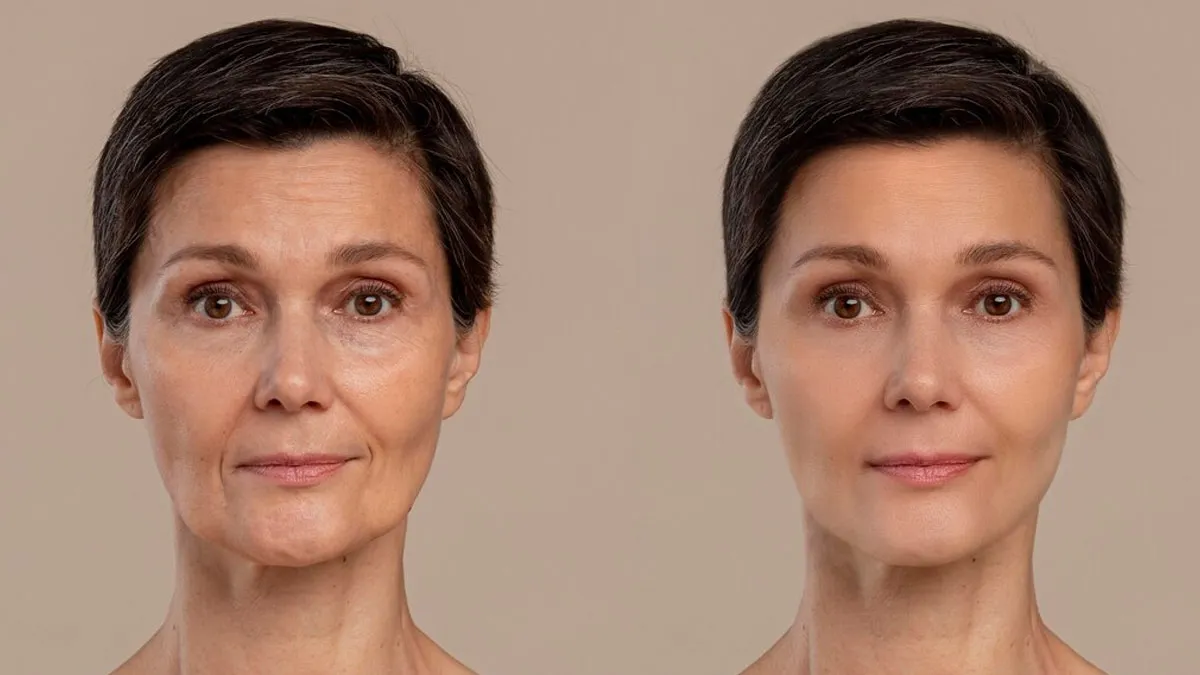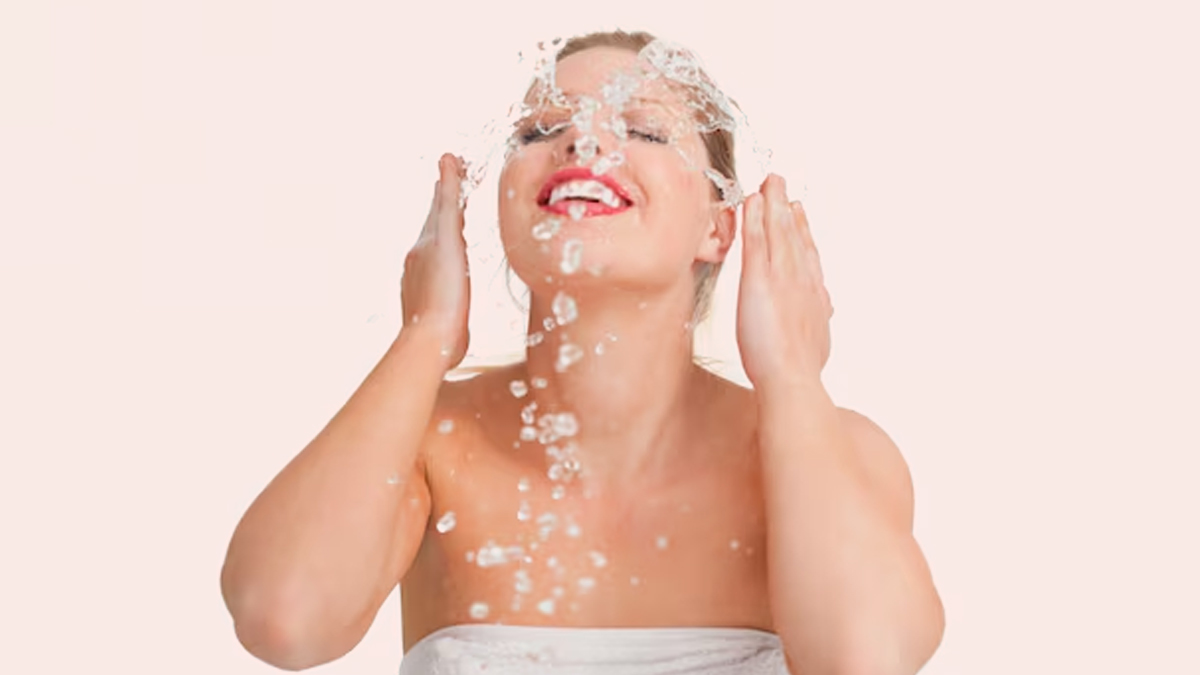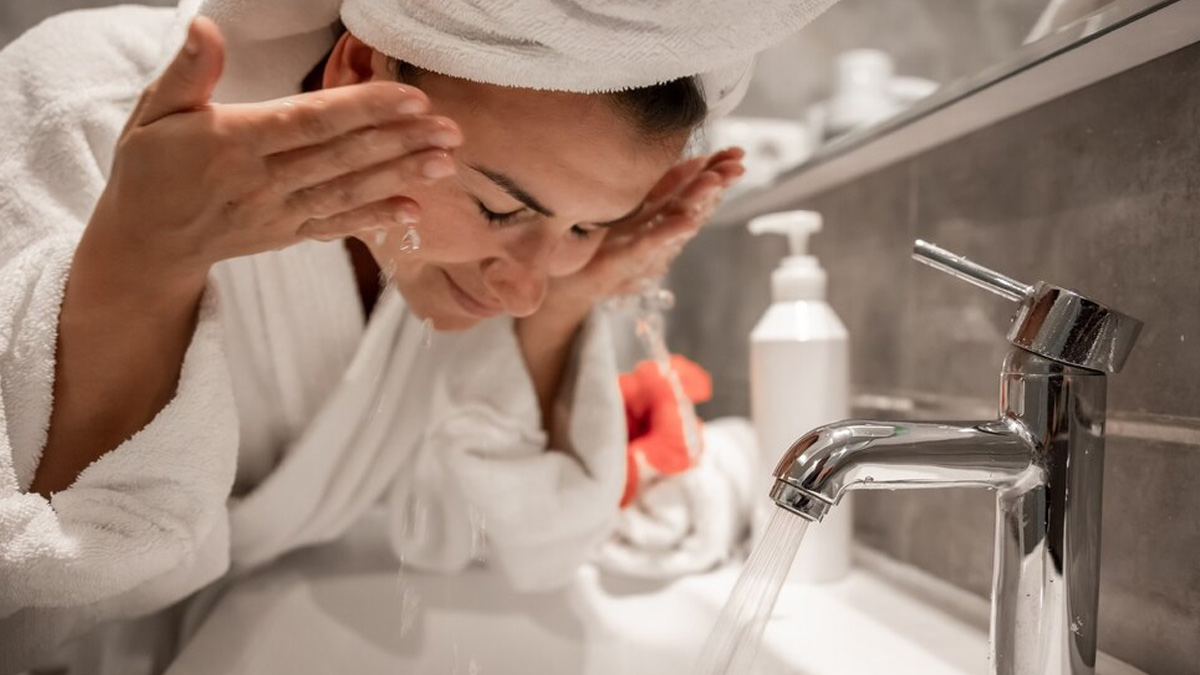
We all love a comforting splash of warm water on our faces, especially on chilly mornings or after a long day. However, you should know that this seemingly trivial habit might be speeding up your ageing process.
Table of Content:-
While hot water feels calming, it wreaks havoc on your facial skin in the backdrop. To better understand this, the OnlyMyHealth team interacted with Dr. Rohit Batra, Vice-Chairperson, Dermatology, Sir Ganga Ram Hospital, New Delhi.
RELATED: Cold Plunge vs. Hot Bath: New Study Reveals the Best Recovery Choice for Athletes
What Happens When You Wash Your Face With Hot Water?

Your facial skin is unlike the rest of your body. It’s thinner, packed with tiny capillaries, and full of pores that make it highly sensitive to external factors, like temperature. While hot water may feel soothing in the moment, it can cause several issues. We have listed some major downsides below.
Skin Irritation and Redness- Hot water can jolt the capillaries just below the skin’s surface, leaving your face irritated and blotchy. If you have sensitive skin or conditions like rosacea, you might notice flare-ups and redness that take longer to fade.
Stripping Natural Oils- Your skin produces sebum, a natural oil that locks in moisture and keeps it soft. Hot water strips away these oils, leaving your skin dry, tight, and vulnerable to damage.
Accelerated Collagen Breakdown- Collagen is the protein responsible for your skin’s firmness and elasticity. When exposed to hot water repeatedly, collagen production slows down, paving the way for fine lines, wrinkles, and sagging skin.
Increased Sensitivity- Hot water can weaken your skin’s natural barrier, making it more prone to irritation from environmental factors like pollution, harsh weather, or even your skincare products. Over time, these effects add up, making your skin age faster than it should.
RELATED: Retinol vs. Vitamin C: Which One Does Your Skin Need? We Asked An Expert
Expert Tips To Avoid Quick Ageing

Dr. Batra explains that ageing is a natural process, but factors such as the loss of collagen and elastin contribute significantly to visible signs of ageing. These proteins are responsible for skin strength, elasticity, and a youthful appearance. As we age, the production of collagen and elastin decreases, leading to wrinkles and sagging skin. To combat this, the following steps should be taken.
Protect Your Skin from Sun Damage
Our expert further emphasises that the sun is one of the leading causes of premature ageing. Ultraviolet (UV) rays break down collagen and elastin, especially in sun-exposed areas such as the face, neck, and hands. To protect your skin from UV damage, Dr. Batra recommends wearing sunscreen daily, even on cloudy days, and covering up with hats or clothing when spending time outdoors.
Know Of The Impact Of Diet On Ageing
Dr. Batra says, “Your diet plays a crucial role in the ageing process. Excessive carbohydrates, particularly refined carbs and sugars, can lead to a process called glycation, which damages collagen and accelerates skin ageing. He then suggests reducing carbs and focusing on a diet rich in lean proteins, healthy fats, and fibre to support skin repair and maintain elasticity.
Focus On The Importance of Collagen-Rich Foods
Collagen is essential for skin health, and consuming foods that support collagen production can help slow ageing. Bone broth, fish, and chicken are excellent sources of collagen. For vegetarians, our expert suggests plant-based foods rich in vitamin C and amino acids, such as soy, legumes, and leafy greens, to stimulate collagen production.
Stay Hydrated for Youthful Skin
Dr. Batra stresses the importance of staying hydrated for youthful, glowing skin. Drinking at least 2 litres of water a day helps keep your skin hydrated from within, preventing dryness and promoting a plumper, more radiant look. Proper hydration helps reduce the appearance of fine lines and wrinkles.
Take Supplements to Support Skin Health
Our expert recommends incorporating supplements into your routine to support skin health, especially those containing antioxidants such as beta-carotene. These nutrients protect your skin from oxidative stress, free radical damage, and UV damage, all of which contribute to ageing.
Eat Clean For A Bright, Glowing Complexion
A diet rich in vitamins, particularly vitamin C, is essential for maintaining bright, glowing skin. Green leafy vegetables, fruits, and other nutrient-dense foods not only support overall skin health but also slow down the visible signs of ageing. Combined with a protective skincare routine and healthy lifestyle habits, Dr. Batra highlights that this approach can help you achieve youthful, vibrant skin.
Bottomline
Your skin deserves care and attention, and something as simple as switching from hot water to lukewarm can make a world of difference. By adopting a few simple habits, like staying hydrated, eating skin-friendly foods, and protecting yourself from the sun, you can slow down the ageing process and keep your skin looking radiant for years to come.
Also watch this video
How we keep this article up to date:
We work with experts and keep a close eye on the latest in health and wellness. Whenever there is a new research or helpful information, we update our articles with accurate and useful advice.
Current Version